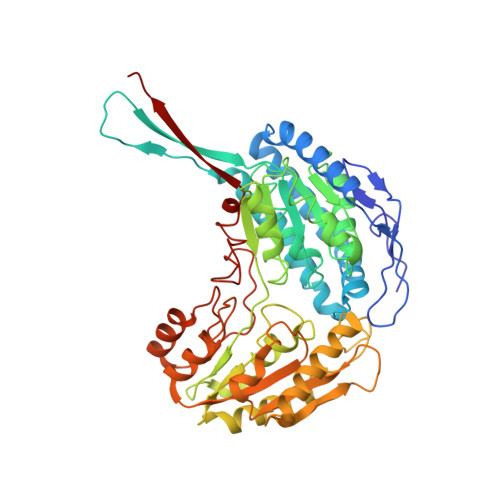Redox-Switch Modulation of Human Ssadh by Dynamic Catalytic Loop.
Kim, Y.-G., Lee, S., Kwon, O.-S., Park, S.-Y., Lee, S.-J., Park, B.-J., Kim, K.-J.(2009) EMBO J 28: 959
- PubMed: 19300440
- DOI: https://doi.org/10.1038/emboj.2009.40
- Primary Citation of Related Structures:
2W8N, 2W8O, 2W8P, 2W8Q, 2W8R - PubMed Abstract:
Succinic semialdehyde dehydrogenase (SSADH) is involved in the final degradation step of the inhibitory neurotransmitter gamma-aminobutyric acid by converting succinic semialdehyde to succinic acid in the mitochondrial matrix. SSADH deficiency, a rare autosomal recessive disease, exhibits variable clinical phenotypes, including psychomotor retardation, language delay, behaviour disturbance and convulsions. Here, we present crystal structures of both the oxidized and reduced forms of human SSADH. Interestingly, the structures show that the catalytic loop of the enzyme undergoes large structural changes depending on the redox status of the environment, which is mediated by a reversible disulphide bond formation between a catalytic Cys340 and an adjacent Cys342 residues located on the loop. Subsequent in vivo and in vitro studies reveal that the 'dynamic catalytic loop' confers a response to reactive oxygen species and changes in redox status, indicating that the redox-switch modulation could be a physiological control mechanism of human SSADH. Structural basis for the substrate specificity of the enzyme and the impact of known missense point mutations associated with the disease pathogenesis are presented as well.
- Pohang Accelerator Laboratory, Pohang University of Science and Technology, Pohang, Kyungbuk, Republic of Korea.
Organizational Affiliation:



















